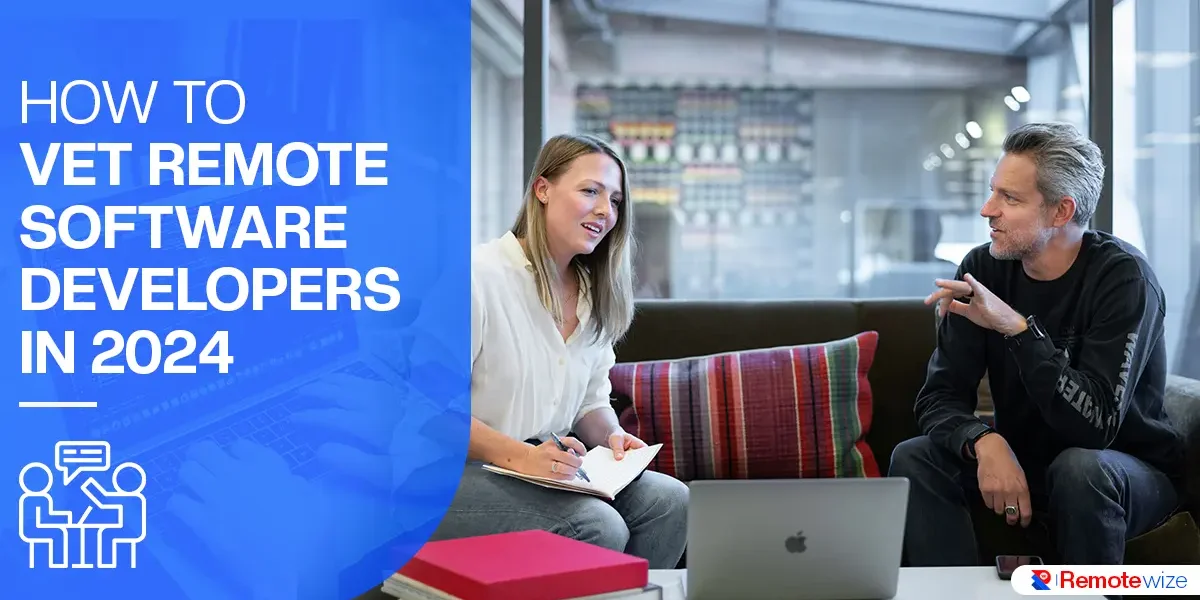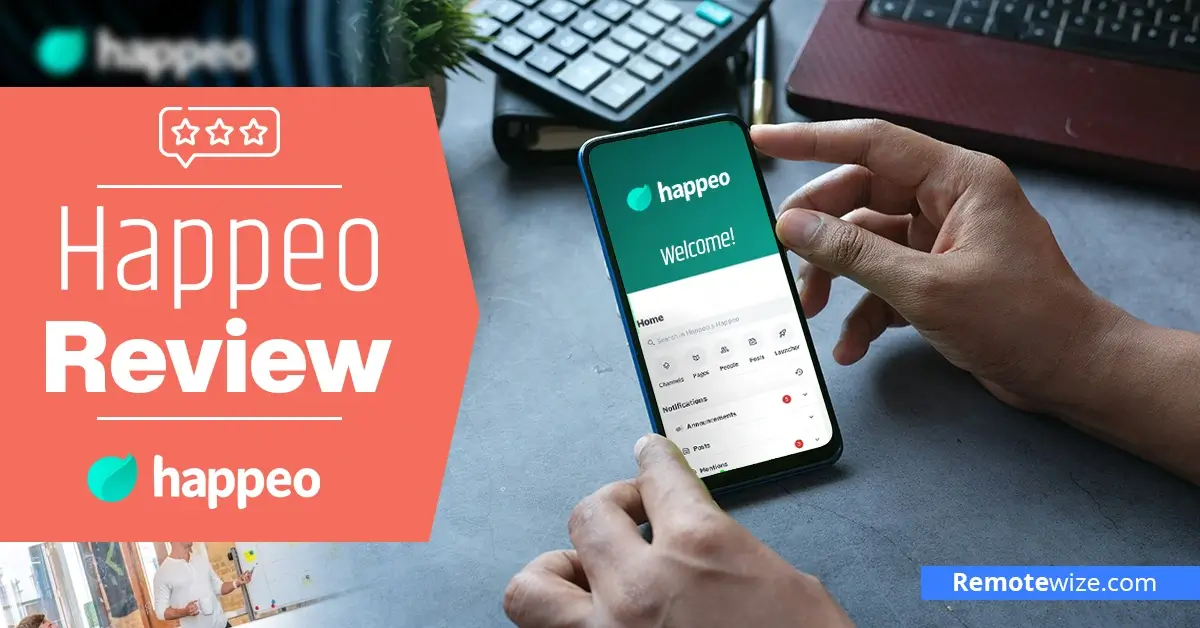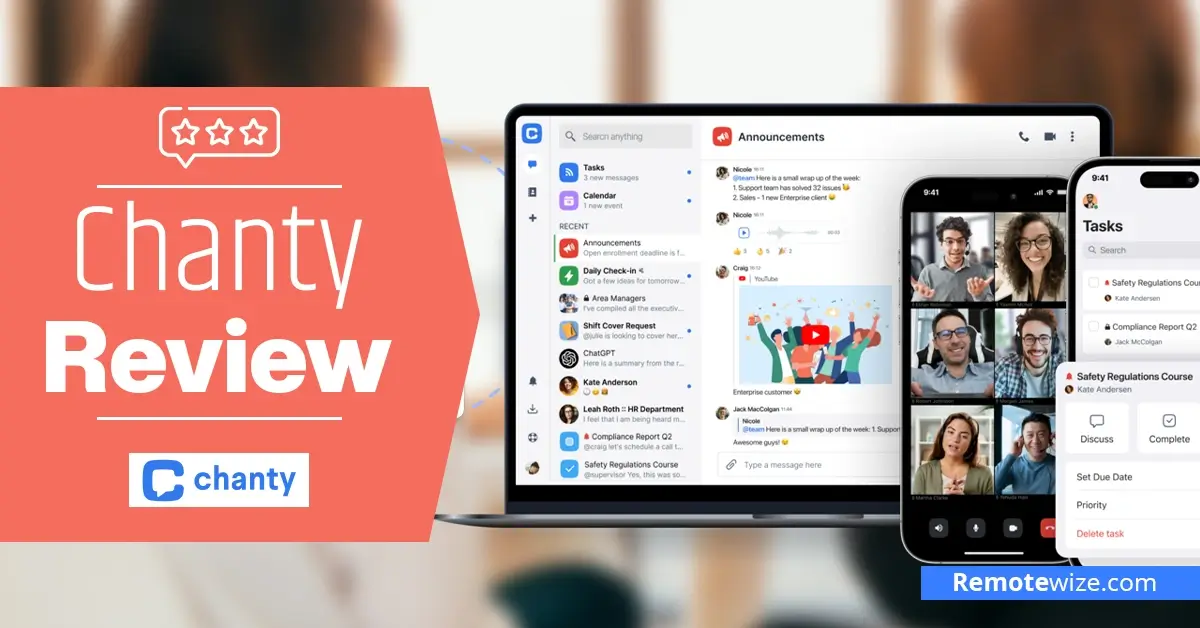As Andrew Chen, Chief Product Officer at Videeo, opines, “you need to thoroughly evaluate each candidate individually to make an informed choice. The process should be conducted in a manner which keeps the primary focus on whether or not a candidate is a good fit for your company.” Videeo hiring process entails vetting software developers thoroughly to ensure only the best-fit candidate makes it through the company door.
Managing the process from the first to the last stage is more advantageous than hiring pre-vetted developers on popular vetting platforms. It enables you to build custom vetting procedures to find software developers for your specific requirements. Don’t know where to start? Read this guide for insights on vetting software developer candidates to hire the best ones for your startup.
Pre-Screen Questions
When vetting software developers, it is crucial to begin with pre-screening questions before delving into the technical aspects.
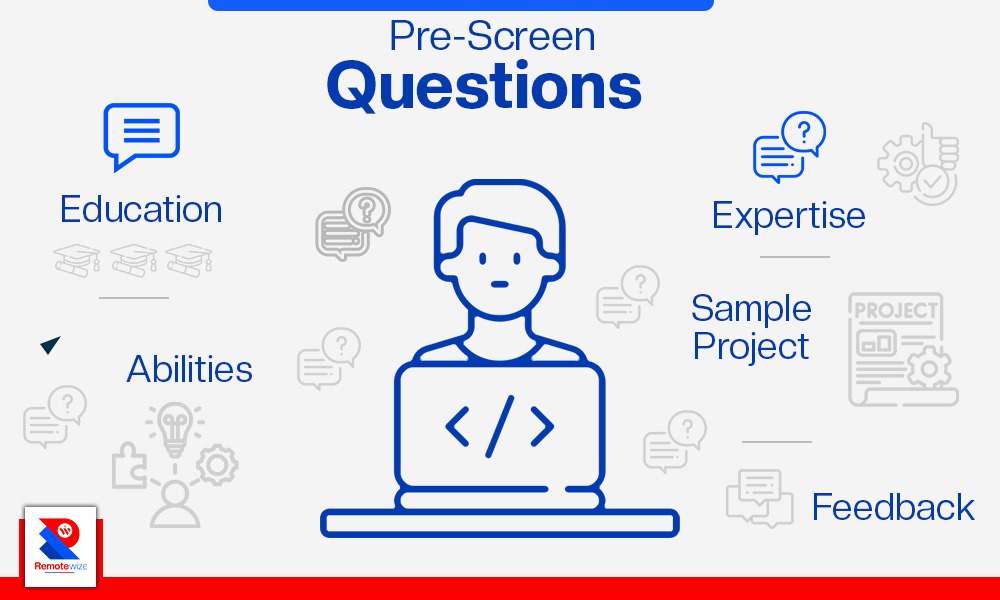
Pre-screening questions can help you save time, learn more about a candidate’s personality traits, and make sure they fulfill the minimum standards. They are a crucial source of data to evaluate a candidate’s abilities and work ethic and can impact the outcome of the overall vetting process.
You can narrow down the pool of candidates by using these questions as an assessment technique. Here are seven fundamental pre-screen questions:
- How do your education and technical training assist you in carrying out your responsibilities as a software developer?
- What expertise and abilities do you already have that you can apply to this position?
- Have you worked on remote projects before? If so, how do you ensure effective collaboration with a distributed software development team?
- Describe a challenging coding problem you faced and how you resolved it.
- How do you keep yourself updated with the latest software development trends and technologies?
- Can you share an example of a successful project you completed independently?
- How do you handle feedback and criticism during the development process? Soft Skills Interview
Soft Skills Interview
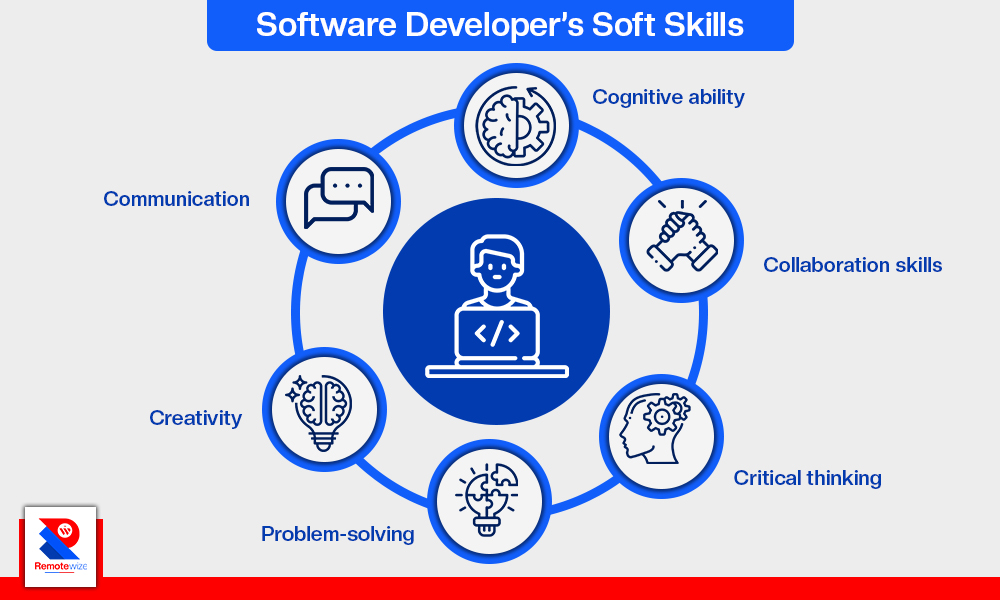
When recruiting software developers, selecting candidates with a strong technical foundation is paramount. However, for them to be all-around, soft skills are also crucial. These essential personality traits facilitate productive collaboration among engineers.
Look for these soft skills in the interview process to determine whether you have the right talent:
1. Cognitive ability
Cognitive ability is an essential trait for remote software developers as it underpins their ability to quickly grasp complex concepts and solve problems. It allows developers to assess hurdles in the development process, break them down into smaller components, and come up with efficient approaches to tackle them. Here are questions you should ask to assess the cognitive skills of candidates:
- Describe a problem you faced in the development process and the steps you took to resolve it.
- How do you handle tight deadlines?
- Can you share a project where you had to identify and fix a bug, errors or other inconsistencies?
2. Creativity and ability to improvise
Programmers and software developers need creativity to build innovative technology. It is one of the essential skills that allow them to create cutting-edge models that appeal to customers and meet their needs. The ability to improvise allows software developers to come up with strategies that can adapt to changing project requirements.
Ask these questions to assess the candidate’s creative skills:
- Tell us of a time you encountered a challenge and needed to pivot your approach during development.
- How do you come up with a new product or feature?
- Have you had to come up with a creative solution to a difficult technical challenge? How did you handle it?
3. Communication
Software developers need to be able to communicate concisely and effectively with project stakeholders such as project managers and other team members. This is especially paramount for remote workers, as they need to be able to convey their thoughts and ideas to people in different physical locations. Questions you can ask to ascertain these skills are present include:
- How would you handle conflict or a disagreement within a team?
- How do you ensure clear and effective communication with team members working in different time zones?
- Describe a situation where you had to explain a technical concept to a non-technical person. How did you make it understandable?
4. Problem-solving
Problem-solving abilities are essential for all aspects of software development. This soft skill, in particular, will have the biggest impact on how your developer approaches difficult problems. It will also have an impact on how ‘out of the box’ they approach obstacles to find solutions. To assess the problem-solving skills of a potential candidate, ask these questions:
- Share an example of a particularly difficult drawback you encountered and how you mitigated it.
- How do you approach debugging when facing a complex issue with multiple potential causes?
- When faced with two development issues as you write code, how will you prioritize which one to handle first?
5. Critical Thinking
This goes hand in hand with problem-solving. Critical thinkers are cognizant of the issue they are dealing with and are aware that there are numerous potential solutions. They will evaluate those options and then choose the one that will meet their needs the best. Ask interviewees these questions in the selection process to determine whether they have critical thinking skills:
- Can you share an example of a situation where you had to challenge a proposed technical solution based on critical analysis?
- How do you approach evaluating the pros and cons of different approaches to a coding problem?
- Tell us of a time you used an unorthodox approach to handle a problem in a job role.
6. Collaboration skills
In regard to software development, no man is an island. Software developers seldom work on projects alone, as input is required from coworkers to bring the project to completion.
Collaboration skills are, therefore, fundamental in ensuring all involved parties work cohesively to boost company culture. Ask these questions to ensure your software engineer can successfully collaborate with others:
- How do you ensure you are successfully participating in a team setting?
- Have you ever faced challenges when collaborating with team members from different cultural backgrounds?
- What do you think are the main hindrances to effective collaboration in the development process? How best would you recommend overcoming them?
Technical Skills Interview
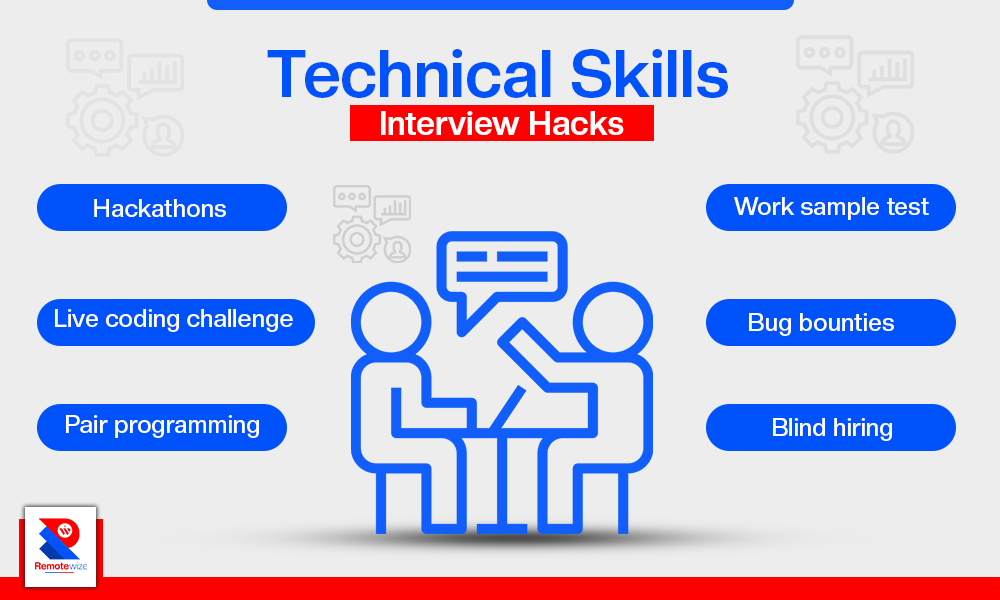
Once you’ve assessed the soft skills, it’s time to evaluate the candidates’ technical prowess. The following tactics will help you identify the best developers for your startup in the technical interview:
1. Hackathons
Hackathons are a great way to set apart skilled software developers from mediocre ones. They allow developers to showcase their skills in a high-pressure environment, providing valuable insights into their problem-solving abilities, creativity, and teamwork.
To use this method effectively, you can organize a virtual hackathon where candidates can collaborate to build a specific feature. Alternatively, you can ask them to solve a predefined problem within a limited timeframe.
You can then use this opportunity to assess their solutions and teamwork during the event. Some useful tools and platforms for hackathons include Devpost, HackerRank, and LeetCode.
2. Live coding challenges
Another trick when vetting software developers is using live coding challenges. These challenges are a great way for you to see how candidates approach problems in real-time. They offer valuable insights into their coding style, efficiency, and ability to communicate technical ideas effectively.
We spoke to Vikas Kaushik, CEO at TechAhead for our piece, and he had this to say: “First and foremost, we carefully assess candidates’ technical talents via coding challenges and work samples to make sure they have a varied skill set and are knowledgeable about pertinent technologies.”
You can undertake one of these by scheduling a live coding session with candidates using screen-sharing tools. You can then provide them with coding challenges relevant to your project and evaluate their problem-solving approach. Platforms and tools you can use for this include CodeSignal, CodePen, and CoderPad.
3. Pair programming
Pair programming refers to a method where two programmers collaborate at the same workstation to create software. While one, the driver, types code, the other, the observer or navigator, checks each line as it is entered.
Pair programming assesses a candidate’s ability to collaborate and communicate effectively with other developers, which is essential for remote teams. You can observe how candidates engage in the process and navigate through coding challenges. Useful tools for this include Visual Studio Code Live Share and Codeanywhere.
4. Work Sample Test
A remote work sample test involves providing candidates with a small real-world project to complete on their own time. This allows you to evaluate their coding skills, approach to problem-solving, and attention to detail.
Ben Richardson, the director of Acuity Training, had this to say about work tests, “Thanks to technological advancement, there are a number of ways nowadays to conduct a monitored skills test. There are websites that will host and monitor the process of the test via screen recording and via webcam to ensure that the test was legitimately conducted.”
You can create a coding task or a mini-project that mirrors the kind of work they’ll be doing at your startup and assess their high quality code. Some useful tools for this include GitHub, Bitbucket, and GitLab.
5. Blind hiring
Blind hiring aims to remove unconscious bias from the hiring process, ensuring candidates are evaluated solely on their skills and experience. It is where you remove personal information like name, gender, and educational background from the initial evaluation of candidates. You can then focus solely on their coding abilities and technical expertise. Relevant tools for this include CodeSignal’s Interview suite and Applied.
6. Code review or bug bounties
Code reviews or bug bounties allow you to assess a candidate’s ability to find and fix bugs in existing code, which is a crucial aspect of any development process. You can offer candidates a codebase or a list of bugs to fix and review and then evaluate them as they work.
7. Questionnaires
Questionnaires are an inexpensive way to gather additional information about candidates. You can get information on their preferred coding languages, development methodologies, and specific areas of expertise. Some tools you can use for this include Google Forms and SurveyMonkey.
Choose The Best Fit Overall
Now that you’ve gained a better understanding of the hiring process for remote software engineers, it’s critical to keep in mind that every applicant is different. Technical proficiency is essential, but it’s also crucial to take into account how well the prospective employee fits with the objectives of your firm. A good developer combines technical proficiency with soft skills properly and can be a tremendous benefit to your company.
Vetting Software Developers: FAQs
Which is the Best Way to Hire a Software Developer?
The best way to hire software developers is to begin by deciding what kind of developer you want. Are you looking for a front-end developer, a back-end developer, or a full-stack developer? After you are clear on that, create a job description for the role. You can then undertake interviews with the job description and required skills in mind.
How Do I Find a Good Software Developer?
There are several effective ways to find a good software developer in 2023. These include posting your job on recruitment websites, asking friends for referrals, sharing your job opening on social media and networking at online tech events. You can also browse software developer communities to find potential candidates.
What are the Qualifications For a Software Developer?
Qualifications you need to be keen on when assembling a software development team include technical skills and knowledge of programming languages and skills. Moreover, you need to recruit remote software developers with soft skills like problem-solving and communication skills that can move your business forward.

